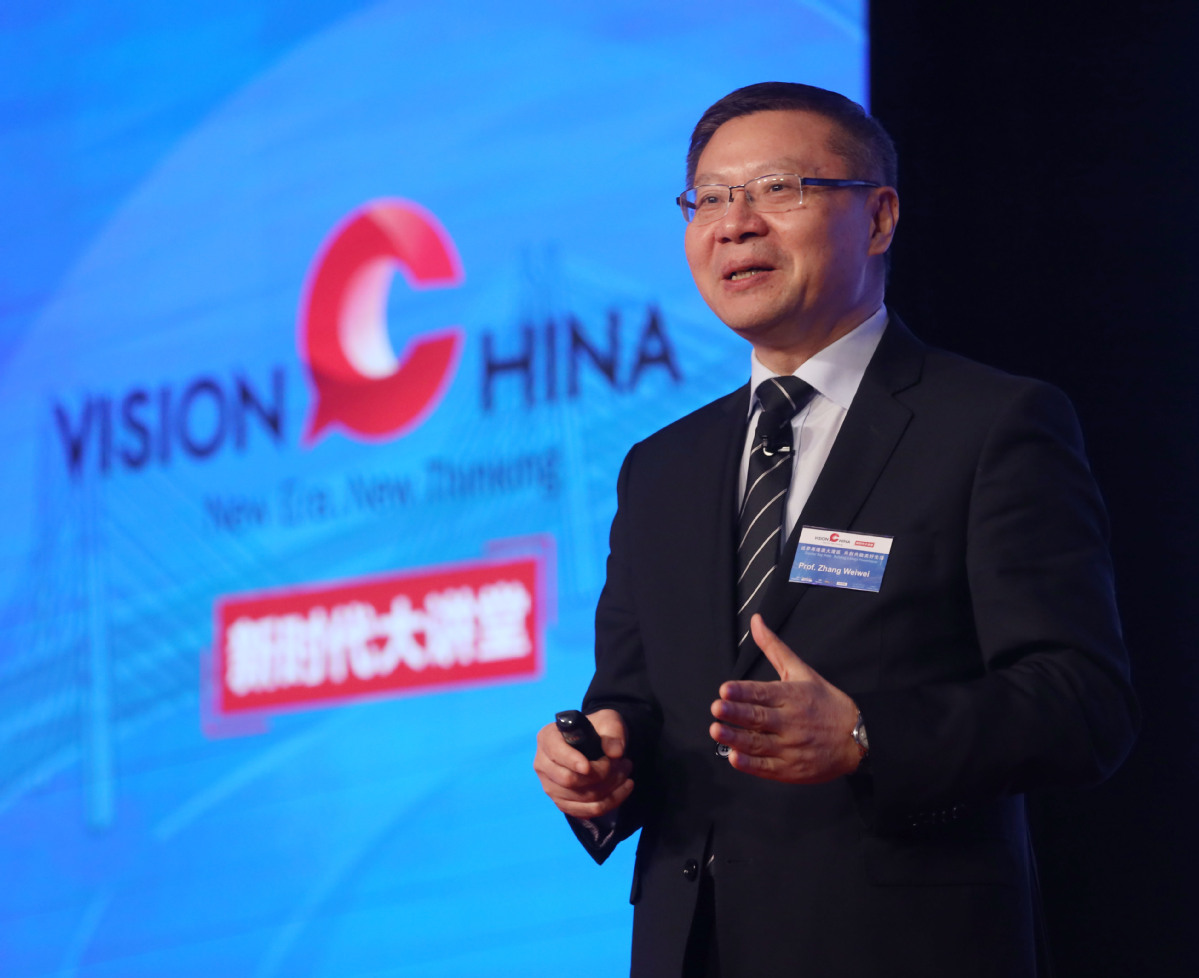'China model' of development provides unique advantages


The Guangdong-Hong Kong-Macao Greater Bay Area, a plan to create a globally competitive cluster of cities in the Pearl River Delta, stands as a living embodiment of foresight embedded in the unique "China model" and offers the next growth engine for the world's second-largest economy, Zhang Weiwei, director of Fudan University's China Institute, told a Vision China event in Macao recently.
Zhang, a theorist of the China model of political and economic development, said the initiative reinforces the theme of regional integration with a synergistic effect. It brings a harmonious combination of local competition and overall cooperation. It is also a vivid example of pragmatic experimentalism and creates "a new point of growth" for such a large and fast-changing country.
All of these are winning growth formulas in a China model that has produced a miracle of development never seen before in human history, Zhang noted.
The influential Chinese scholar said the China model theory has gained traction in recent years as the country becomes more proactive in its own development path and strategic policy.
In the political domain, China has created a model that can be summarized as "selection+election". Selection is largely based on meritocracy, and Zhang firmly believes this model is superior to the Western model of relying on popular elections.
Economically, its "socialist market economy" is essentially a mixed economy: mixing the visible hand with the invisible hand, state planning with market forces.
Socially, the China model is about highly positive interactions between society and the state.
The uniqueness of the China model should be understood in the context of China as a "civilizational state"-a marriage of "nation-state" and "civilization-state"-that has developed from hundreds of states amalgamating into one over thousands of years.
Zhang pointed out that with a large population and territory, a long history and rich culture, the Chinese state has been ruled by a "unified Confucian ruling entity".
"In case of the Western model, I'll call the political system a partial interest political party. In China's case, it is the holistic interest party that represents the overwhelming majority of Chinese people. This is China's unique advantage and overwhelming policy force," Zhang reckoned.
Such an advantage allows China to plan for the medium to long term and even for the next generation and next century, rather than for the next election, he added.
The Greater Bay Area, which is very much within the 14th Five-Year Plan (2021-25), offers another vivid example of the country's foresight and visionary planning, concluded Zhang, who said he is a firm believer that the initiative has what it takes to become "a mega power of success".
- Survivor of Japan's 'comfort women' system dies, leaving 8 on Chinese mainland
- 19 foreigners among China's first officially certified hotpot chefs
- China approves new lunar sample research applications from institutions
- Fishing, Hunting festival opens at Chagan Lake in Jilin
- A glimpse of Xi's global insights through maxims quoted in 2024
- China's 'Ice City' cracks down on ticket scalping in winter tourism




































